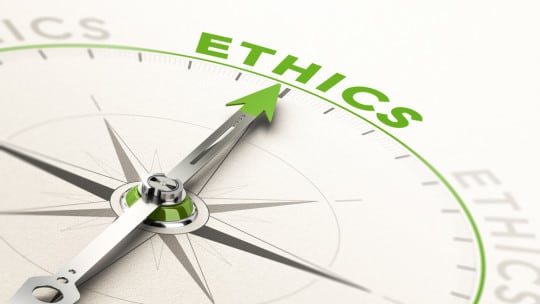
In just three years of existence, the Global Communications Reportfrom the Center for PR at the USC Annenberg School for Communication and Journalism has become a trusted benchmark. It’s also known for focusing on different issues and examining them with depth, surveying more than 1,000 PR leaders and PR students across the globe.
Little surprise this year’s study centers on issues such as ethics and fake news. That some of the findings are dire is even less surprising.
For example, 92% of PR pros said “fake news” is the biggest ethical challenge to the industry. Next was “the purposeful distortion of the truth” (91%). Defense of malicious behavior (88%) and lack of corporate transparency (81%) also were high on the list of PR professionals’ and PR students’ ethical concerns (See chart A).

Fortunately 62% of PR pros surveyed believe business, including PR, is becoming more ethical; just 12% predict businesses will become less ethical over the next five years.
Looking at chart E you can see PR pros are concerned about the public’s perception of ethics in PR. 50% of all PR professionals surveyed believe the PR industry in their country has an unethical image. That number is slightly higher among U.S. pros at 57%. Looking forward, 67% of international and 56% of U.S. PR professionals anticipate the PR industry in their country will become more ethical over the next five years.
While it seems clear PR pros and students are interested in raising the ethical standards of the profession, the precise paths are less obvious.
As you can see in chart B, just a bit more than half said they’d received ethics training. A positive sign is chart C, which shows most organizations have ethics codes and that they’re communicated effectively.

Chart D shows an overwhelming majority of PR pros agree an industry-wide code of ethics is needed (92%). While the majority (59%) feel an organization is needed to enforce ethics and 62% favor certification courses, those percentages are far from the 92% who’d like to see a generally accepted code of ethics.
Another interesting finding is just 58% say an industry association like PRSA or PR Council should be responsible for establishing ethical standards for PR.
Adding mud to the ethical waters, the report discusses the increase in branded content coming from news publishers.
The study finds 64% of PR pros believe the average consumer will be unable to distinguish between earned media and paid media/branded content within 5 years. Worse, perhaps, is 60% of those surveyed feel the public will not care that it’s unable to make that distinction.


